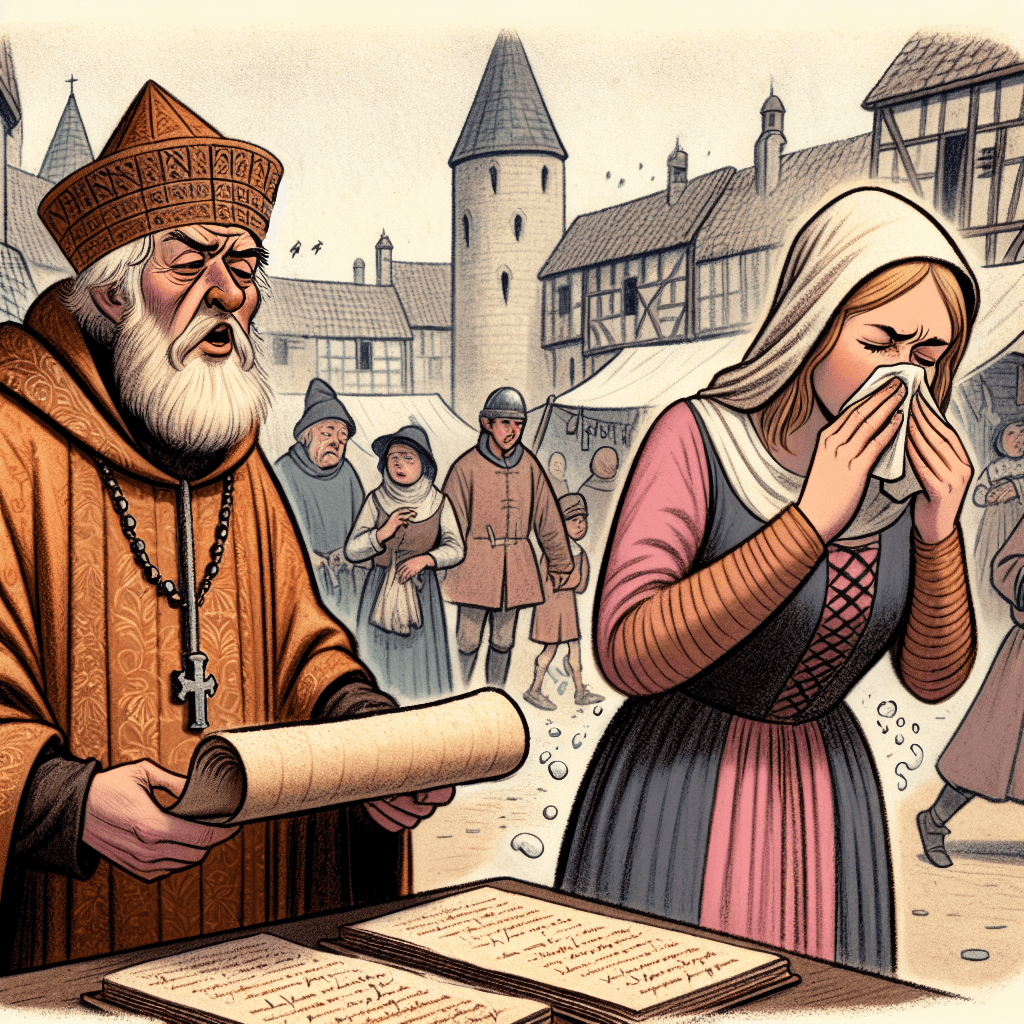Why did a pope once command people to say a prayer after every sneeze
The phrase "God bless you" is more than just a polite custom; it was once a desperate papal command issued to combat a devastating plague where a sneeze could be a death sentence.


Too Long; Didn't Read
TLDR: During a deadly 6th-century plague, Pope Gregory the Great believed sneezing was a fatal symptom, so he commanded a short prayer, the origin of God bless you, as an urgent blessing to protect people from the illness.
God Bless You! The Real Story of Why a Pope Commanded a Prayer After Every Sneeze
Have you ever wondered why we say "God bless you" when someone sneezes? It's a reflex for many, a polite custom passed down through generations. The most popular explanation points directly to the Vatican, telling a dramatic story of a deadly plague and a papal decree. According to legend, a pope once commanded the faithful to say a prayer after every sneeze to ward off imminent death. But is this compelling tale a historical fact or a pious piece of folklore? This post will delve into the history behind this fascinating tradition, separating the verifiable facts from the enduring myths surrounding the sneeze, the plague, and the pope.
The Pope, the Plague, and the Prayer
The story centers on one of the most influential figures in the early Catholic Church: Pope Gregory I, also known as Gregory the Great, who reigned from 590 to 604 AD. The legend places him in Rome during a devastating outbreak of pestilence, often identified as a recurrence of the Plague of Justinian.
According to the tale, the disease was so virulent that a sneeze was considered a sure sign of infection and a precursor to death. In a desperate attempt to combat the plague through divine intervention, Pope Gregory the Great supposedly issued a papal edict. This command had two parts:
- Anyone who sneezed must have the prayer "God bless you" said over them immediately to protect their soul.
- The person who sneezed should respond with a prayer of their own, such as "May God help me."
This narrative provides a simple and powerful origin for our modern custom. It connects a common bodily function to a major historical crisis and the decisive action of a revered religious leader.
Separating Historical Fact from Pious Folklore
While the story is compelling, historians have found no direct evidence to support it. There is no surviving papal bull, official decree, or contemporary written account from Pope Gregory's time that mentions such an order. While Rome was indeed struck by plague around 590 AD, the link between the Pope and the blessing is considered by most scholars to be a legend that developed centuries later.
The practice of blessing a sneezer actually predates Christianity by a significant margin. Ancient cultures held various superstitions about sneezing:
- Ancient Romans: Believed a sneeze could expel one's soul or let evil spirits in. They would say "Jupiter preserve you" to ward off this danger.
- Ancient Greeks: Viewed a sneeze as a sign from the gods, which could be either good or bad depending on the circumstances. A blessing acknowledged this divine signal.
- Early Beliefs about the Soul: A common thread in many ancient cultures was the idea that the soul, or the "breath of life," could be accidentally expelled from the body during a forceful sneeze. A blessing was a way to protect the sneezer.
Therefore, the custom was already well-established in Europe long before Pope Gregory I was born.
Why the Papal Legend Endures
If the story isn't historically verifiable, why has it remained so popular? The endurance of the Pope Gregory legend can be attributed to a few key factors. First, it's a fantastic story that provides a neat, memorable origin for a widespread tradition. Second, Pope Gregory the Great was a powerful and reforming pope, making him a believable protagonist for such a public health and spiritual directive. Finally, the story firmly anchors a pagan-era custom within a Christian framework, which was a common practice as Christianity spread throughout Europe. The terrifying reality of the plague created the perfect environment for such a story to take root and flourish.
In conclusion, the idea that Pope Gregory I commanded people to say "God bless you" after a sneeze is a powerful piece of folklore, not a documented historical event. The tradition's true origins are much older and more complex, rooted in ancient beliefs about the soul and the divine. The legend's persistence, however, speaks to our human desire to find meaning and order in our customs, connecting a simple reflex to a dramatic moment in history. So, the next time you bless a sneeze, you are participating in a tradition that spans millennia—a custom shaped by ancient superstition, polished by medieval storytelling, and still practiced around the world today.


